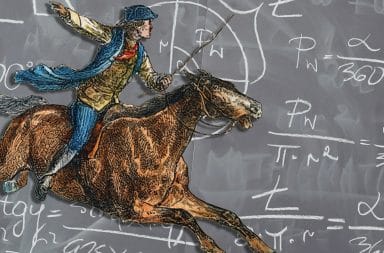There’s been a lot of talk at court lately about legends of old: where do you draw the line between myth and reality? Do the bards who sing of heroes' feats have the right to just rip off people’s lives? I don’t know the answer, but if you’ll join me by the fire, I’ll regale you with my tale.
I had just returned from a routine grail quest last week when the courtiers started approaching me. Some were longtime comrades; others were people I’d exchanged pleasantries with at a joust. They all had the same question: have you read the Nowell Codex?
They were talking about Beowulf, a supposedly fictional poem about a hero from Geatland who just happens to share my name (which is not very common—I only know two other Beowulves). He defeats a series of monsters and becomes king and then kills a dragon and then gets killed. It’s pretty straightforward and frankly too long. I had heard of the document at court but hadn’t thought much about it—until now. I asked the court scribe to make me an illuminated manuscript and I read it eagerly. By the time I finished, I knew there was no denying it.
The writer had stolen my story.
First off, I’m from Geatland. The poet could have chosen anywhere for the guy to be from, but that’s what he went with. Anyway, when I was younger, I started hanging around a lot with Hrothgar, king of the Scyldings, just trying to get my start in the world of chivalry. And this monster—we’ll call him Mr. G to protect his privacy—was giving the king a hard time. The monster in the poem “dwelt in the moor-fens, the marsh and the fastness”—and guess what, that’s exactly where my monster dwelt.
Ultimately, I grabbed him by the leg and ripped it off, sending him fleeing to his death. And that’s what happens in the poem, though the “author,” if you can even call him that, changed it from a leg to an arm. Real smooth.
In the poem, the next thing that happens is Mr. G’s mom comes tearing in, and that’s pretty much what happened to me, though it was actually his great-aunt. So I chased her to her hideout and I had this special sword all ready so I could kill her—again, just like the guy in the poem. But in real life, things were different. She had Mr. G’s body there in her hideout and I started to feel really bad about the whole thing, so I took pity on her. We’re actually still in touch. In the poem, though, the author has me brutally destroying her and then cutting her son’s head off. I guess these writer types aren’t into nuance.
The king thanked me for everything, but he was like: “Beware of arrogance, world-famous champion! But a little-while lasts thy life-vigor’s fulness,” which I definitely took to heart. And so, apparently, did the poet, who literally copied him word for word.
I understand why someone might want to use my story; I guess I’ve slain more monsters than your average Geat on the street. But I mean, at least change the names of the swords—instead of Hrunting and Nægling, how about Grunting and Schmægling? And maybe Beowulf could have been, I dunno, Beotyger? It’s like: come on, you’re a writer, use your imagination!
It just feels very weird to have your life laid out on parchment without your knowledge, you know? I wanted to write to the author so I could give him a piece of my mind, and maybe a piece of Mr. G’s gross leg, just as a joke. But the writer didn’t sign his name or anything—probably because he's a plagiarist—so I guess we’ll never know who it was. People are saying he must have heard my tale told 'round the campfire, but I wouldn’t be surprised if he got some of the details from Hrothgar’s thane Unferth. That guy’s kind of an ass. When I asked him about it, he got all awkward and started yammering on about how the oral tradition was on its way out and this document was some kind of breakthrough for our language, which we’re calling New English for now.
And it's true that everyone at court has been buzzing about the manuscript. But I’m trying not to worry about it. I’m sure no one will remember the poem in a week or two.


